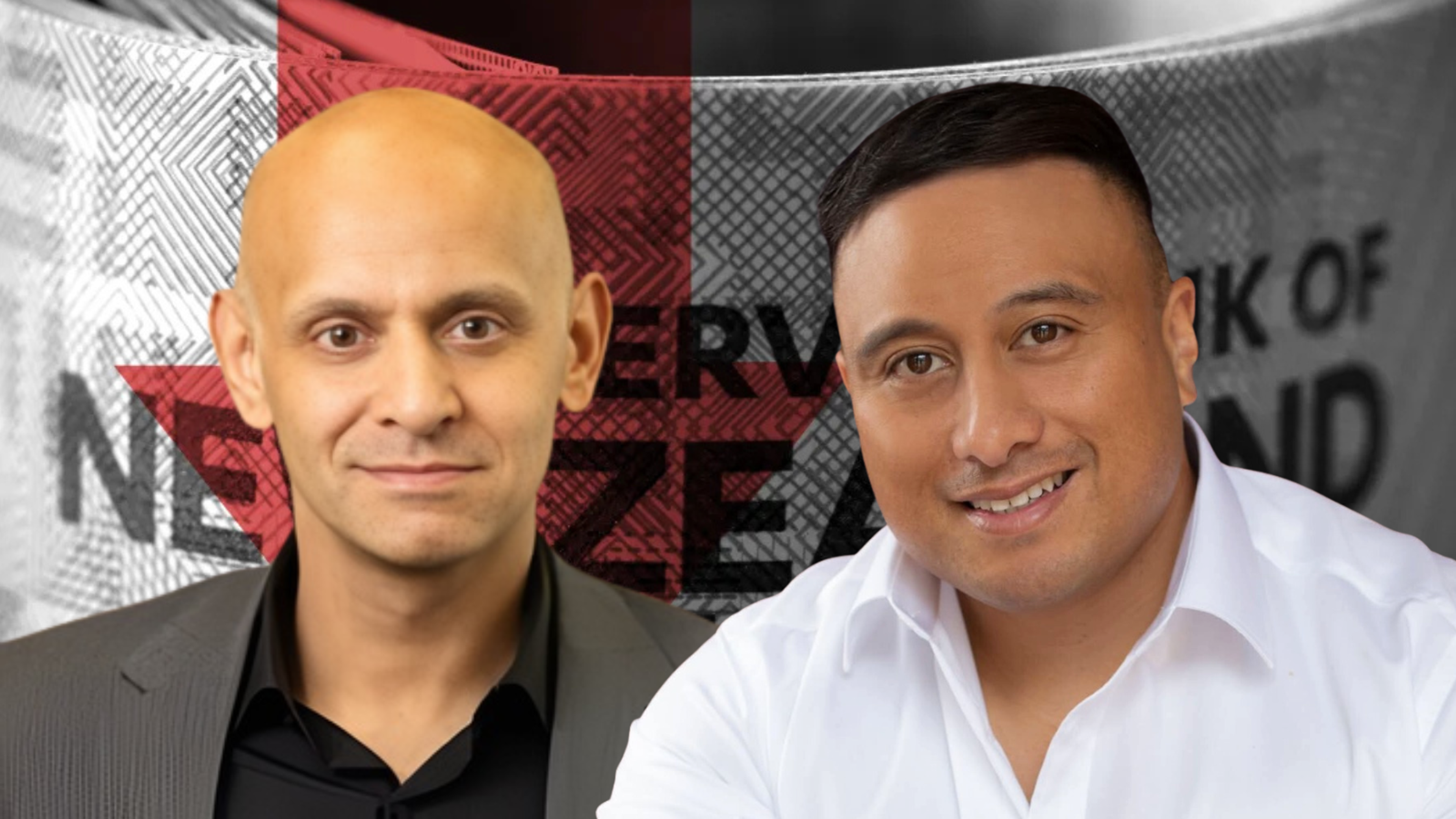
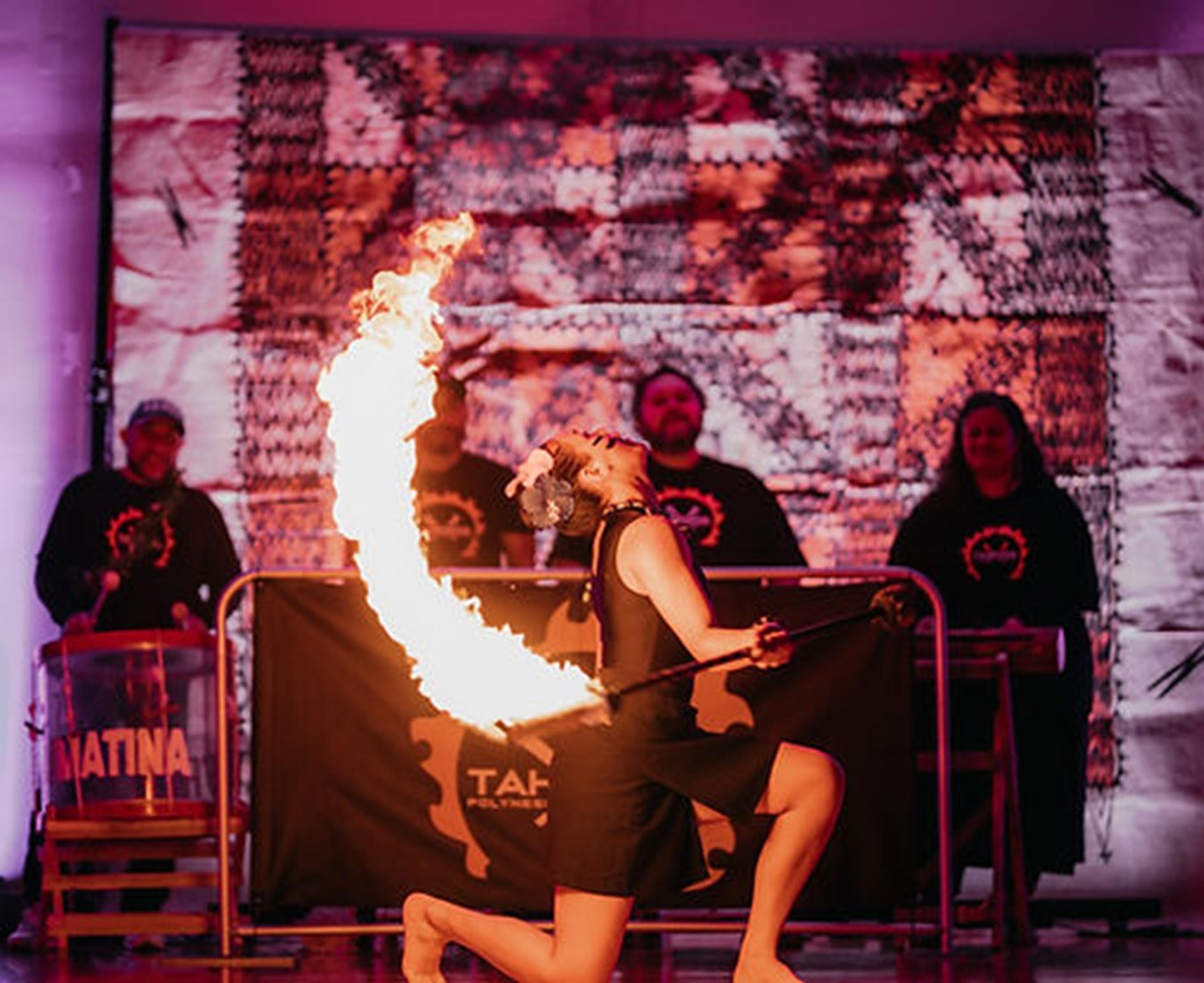
Fire and flair - 2025 marks the first time siva afi featured at the Whau Pasifika Festival.
Photo/Auckland Council
Whau Pasifika Festival champions youth, calls for real govt backing
Now in its 11th year, organisers stress the importance of community unity and Treaty partnerships.



Fiji fast-tracks needle programme as new study shows HIV cases surging at record pace

‘Shot put queen’ Dame Valerie Adams leads Pacific pride at NZ's Halberg Awards 2026
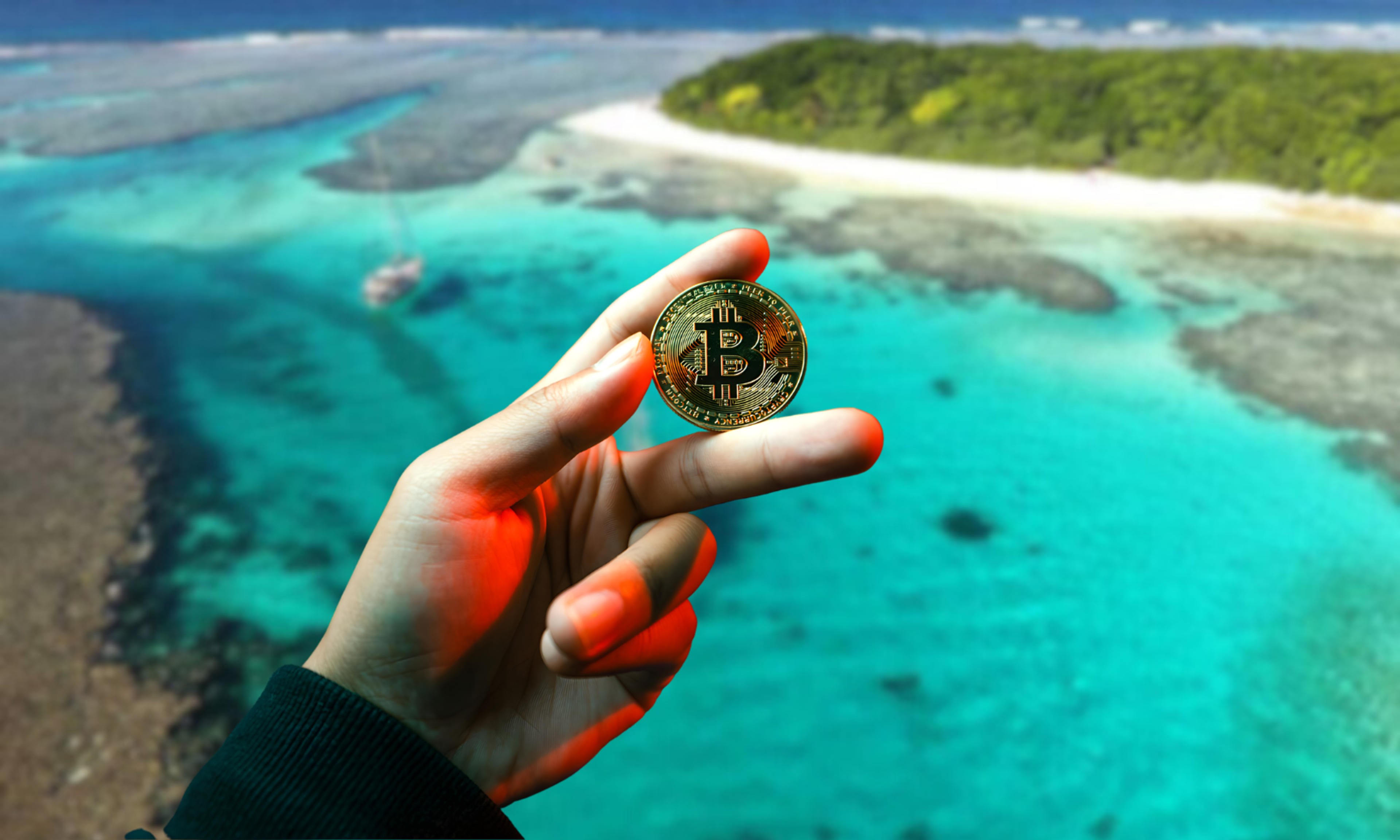
Pacific digital-finance push continues despite global crypto volatility


Rising costs hit Pacific families hard as interest rate decision nears

Fiji fast-tracks needle programme as new study shows HIV cases surging at record pace

‘Shot put queen’ Dame Valerie Adams leads Pacific pride at NZ's Halberg Awards 2026

Pacific digital-finance push continues despite global crypto volatility
The Whau Pasifika Festival has returned to West Auckland with its most ambitious programme yet, but organisers stress that meaningful government investment is key to ensuring its survival beyond 2025.
Ina Sauni, the festival director, says the community-led event has become vital for promoting Pacific youth leadership, cultural expression, and civic participation. She wants local and central governments to offer financial backing rather than merely attending the festival for photo opportunities.
“They need to put their money where their feet are,” she says. “These things don’t run on volunteers. We pay everyone involved in this festival. It’s about valuing our artists and our people.”
Running from 26 June to 5 July, the festival features events across the Whau region, including fire dancing, fashion shows, youth debates, and discussions based on the Treaty of Waitangi. The Whau Local Board funds the festival, which is organised by the Whau Pasifika Komiti.
Sauni says this year’s programme includes a wide range of events that celebrate Pacific identity, heritage, and creativity throughout West Auckland.
“We’re thrilled to be hosting West Auckland’s first-ever Siva Afi [fire dancing] competition,” she says. “It will be a visually spectacular event that celebrates Pasifika heritage, skill and tradition.”
The programme also features a Pasifika fashion show with 12 designers, both established and emerging, taking place in a textile warehouse that will be specially cleared for the occasion. “It’s going to be unforgettable.”
Despite the festival’s growth, Sauni warns that national arts funding cuts pose a significant threat to the festival’s future.
“We value our artists, our artisans, our culture bearers, and everyone is paid for this festival. That’s what respect looks like.”
Watch Ina Sauni’s full interview below:
Festival promotes unity and Treaty partnerships
The Whau Local Board commissioned Auckland’s first Pacific Peoples Plan in 2019 and has supported the festival since its inception.
Fasitua Amosa, the Deputy Chair, says the festival has become a cornerstone of West Auckland’s cultural calendar.
“The Whau Pasifika Festival brings people together across cultures, generations and neighbourhoods, and reminds us of the strength in unity,” he says.
“This year’s theme, Kotahitanga, perfectly reflects our shared commitment to community partnership and respect under Te Tiriti o Waitangi.”
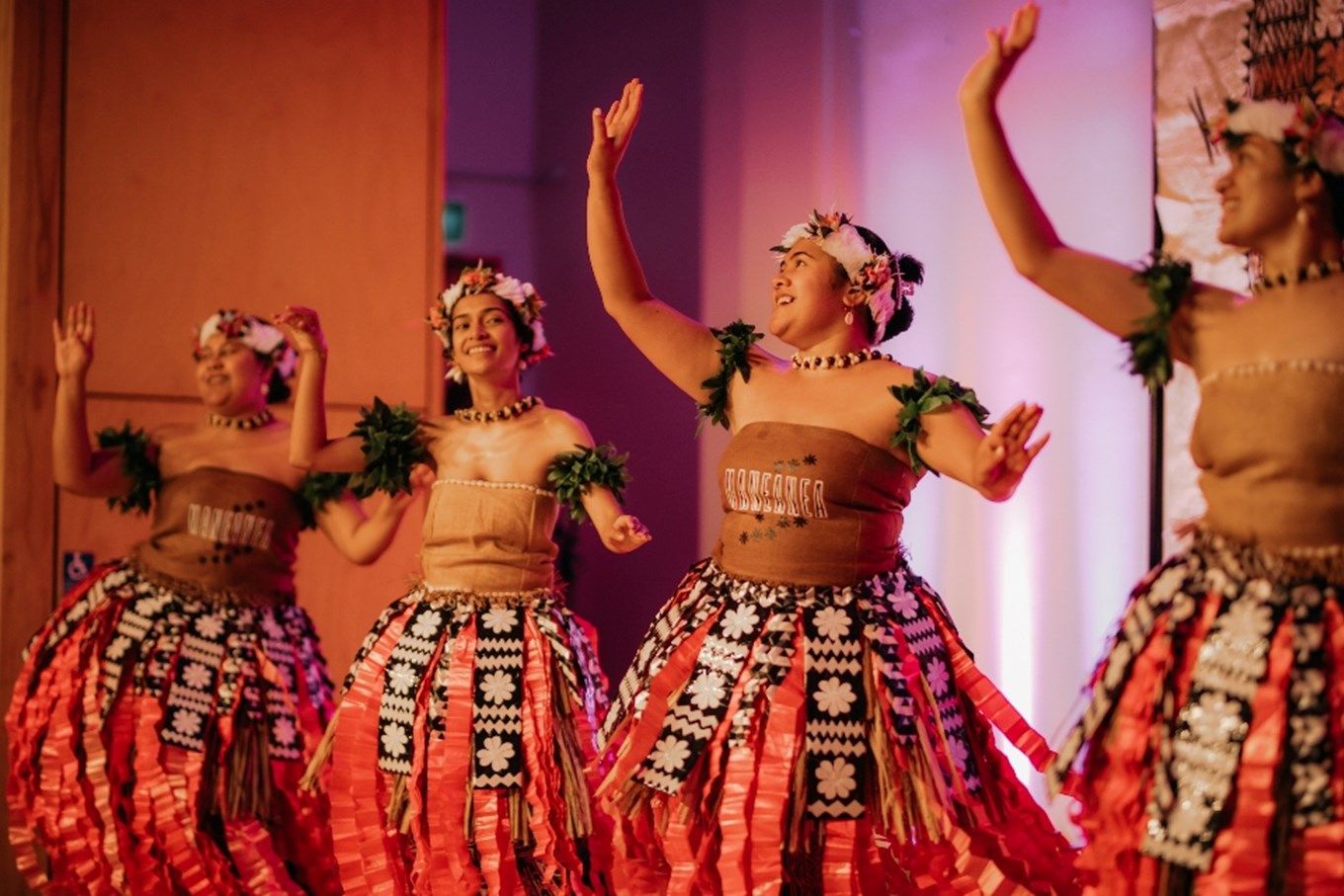
Cultural pride on full display during festival performances. Photo/Auckland Council
Amosa says he is proud of the collaboration with mana whenua Te Kawerau ā Maki, who will host a special event during the festival to share ancestral stories about their journey to Aotearoa.
Kay Thomas, the Local board chair, says the festival embodies the values of the board and the community.
“Whau Pasifika is all about Kotahitanga - bringing our diverse communities together to celebrate the strength, creativity and beauty of Pacific cultures,” she says. “It’s a vibrant showcase of talent, tradition and connection that we’re incredibly proud to support.”
Youth debate leads the way
The festival kicked off on Thursday with its third annual youth-led school debate, where local students addressed issues affecting Pacific communities.
Watch Uelese Motusaga and Kena Hemana Hekau’s full interview below:
Avondale College head girl and Youth MP Kena Hemana Hekau, the school’s first Niuean female lead, says the debate proves Pacific youth are ready to lead.
She believes that engaging in civic spaces shapes cultural futures.
“As Pasifika, we are a reflection of our community,” she says. “The debate is a great way not only for us to practise our skills in public speaking, but also to express ourselves.
“I think the actions we take now will affect how our culture is preserved in the future. By getting us into these spaces, it promotes our voices so we feel heard within our community and can contribute as well as connect.”
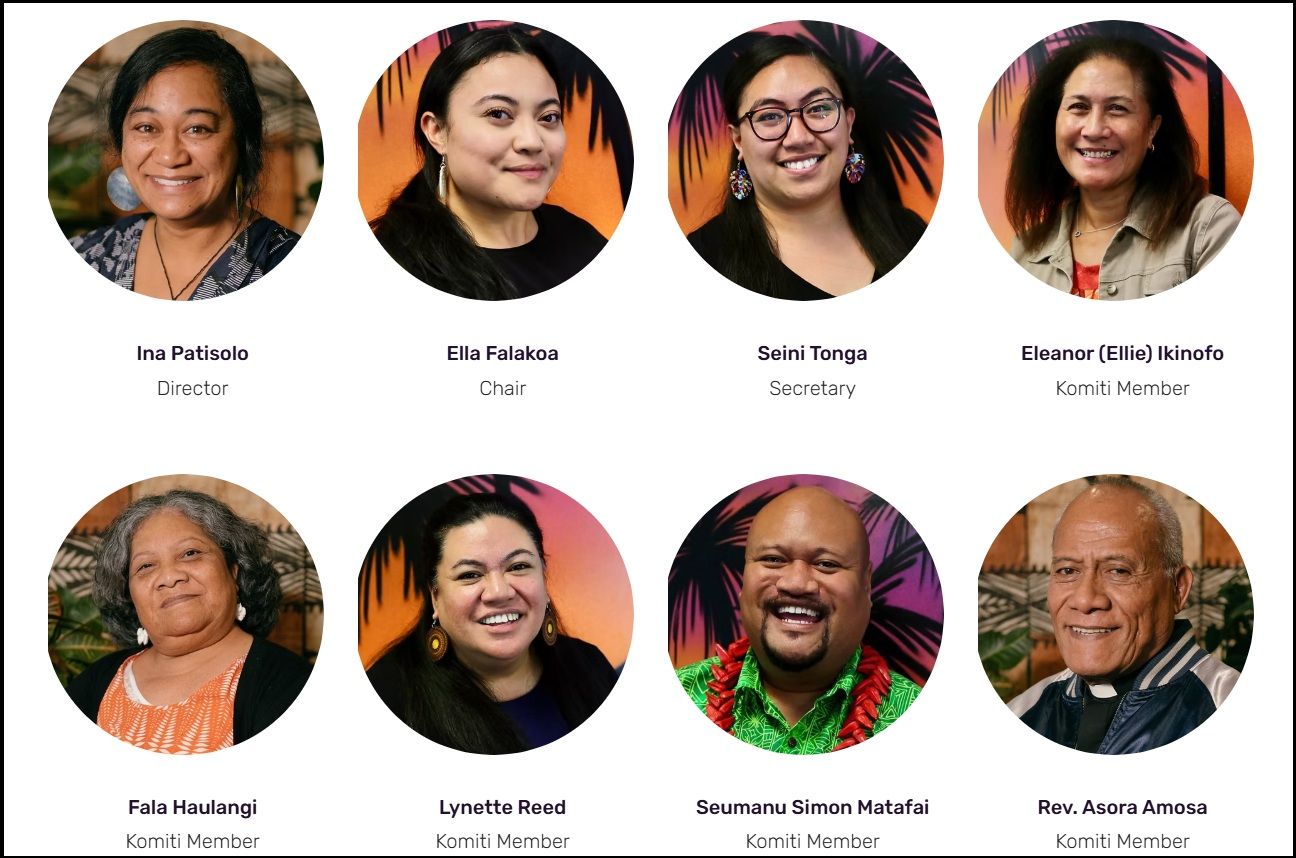
Whau Pasifika Komiti: Organisers of the festival, marking 11 years of Pacific celebration, unity and pride. Photo/Whau Pasifika
Uelese Motusaga, a Kelston Boys’ High student leader, who was a member of the 2024 champion debate team, agrees.
When asked about the importance of local leaders supporting young Pacific leaders, Hekau says it helps students feel valued and recognised.
“It’s a great way for us within schools to understand that we are heard, we are given a platform to be seen, and that not only do our opinions matter, but the community sees that and they want to prepare us for the future so that we can give back when we're older.”
“Our fathers are chiefs, and our mothers are orators. We’re natural speakers,” he says. “It’s all about stepping into spaces that honour who we are.”
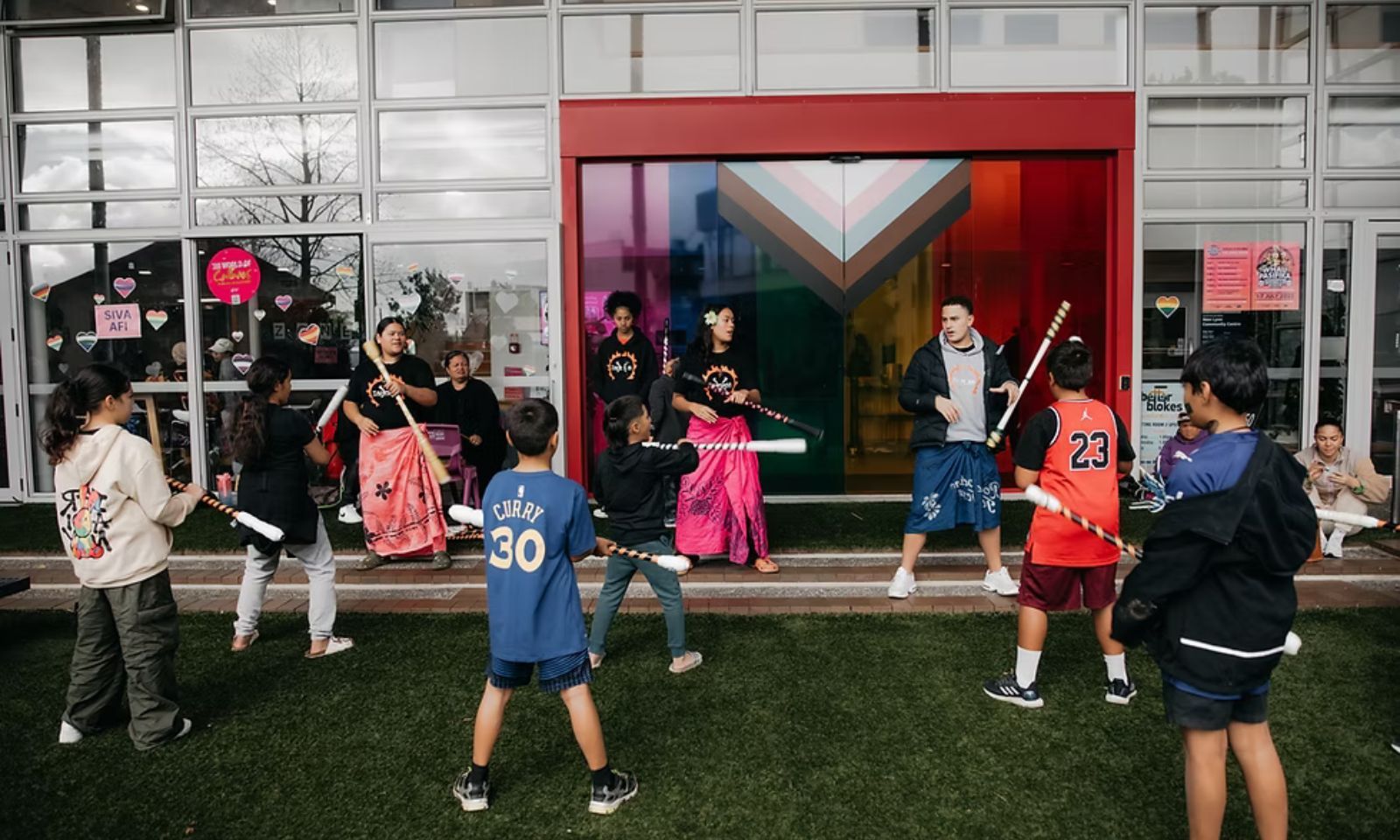
Community and children connect through culture at the Whau Pasifika workshop. Photo / Whau Pasifika
Motusaga says having that support means everything.
“It means feeling seen and feeling heard,” he says. “I think especially growing up, that’s something every youth deserves. Just knowing that our voices are valued and that somebody is willing to invest in what we have to say, especially as young voices. It means a lot.”
Partnership with mana whenua
This year’s festival continues to celebrate the collaboration between the community and mana whenua Te Kawerau ā Maki, fostering deeper connections and respect for cultural heritage.
They will share stories about their arrival in Aotearoa.
Sauni says the partnership reflects how Treaty relationships can work in practice.
“It’s grounding. It’s real. And it’s how we build unity - kotahitanga - not just talk about it,” she says.
Not just a ‘nice-to-have’
As the festival continues to grow, organisers say sustained funding is needed to support the platform it provides.
“It’s not a ‘nice-to-have’,” says Sauni. “The arts are essential to building strong, confident, future-ready communities - and Pacific communities deserve to be at the centre of that.”
All events are free and open to the public. The whole programme is available here.
LDR is local body journalism co-funded by RNZ and NZ On Air.
